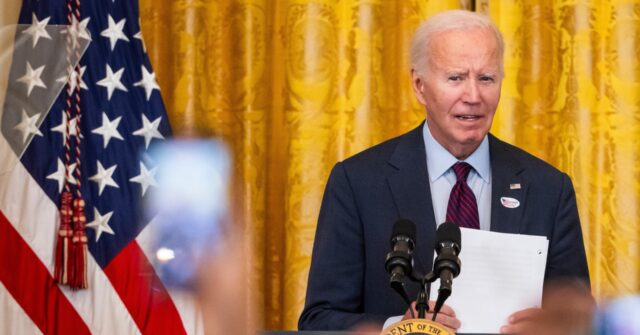In a recent incident that garnered significant attention, President Joe Biden made remarks that challenged the rhetoric surrounding Puerto Rico at a rally for Trump supporters. The White House released a transcript in which Biden referred to a specific Trump supporter’s comments as “garbage.” However, the use of an apostrophe in “supporters” and an em-dash led to interpretations of his statement being directed at just one individual rather than the entire group. In his remarks, Biden criticized the demeaning portrayal of Puerto Ricans made by a speaker at the rally, stating that, in his experience, Puerto Ricans are “good, decent, honorable people.”
Biden’s comments were particularly directed at a joke made by comedian Tony Hinchliffe, who, during the rally, had likened Puerto Rico to a “floating island of garbage.” This quip not only drew laughter at the event but also set off a wave of backlash, with many accusing Trump supporters of harboring harmful stereotypes against Latinos. Biden asserted that the demonization of Latinos was “unconscionable” and “un-American,” highlighting that these sentiments conflict with American values and history. While he aimed to critique the dismissal of Puerto Rico, the framing of his statement left room for misinterpretation.
To clarify his earlier statement, Biden’s social media account later emphasized that his comment was specifically aimed at the rhetoric shared by one supporter, making a point to disassociate that individual’s remarks from the broader group of Trump supporters. This clarification was perceived by some as an attempt to mitigate the controversy and avoid alienating voters who may align with Trump but do not share the same views as those espoused at the rally. The acknowledgment of Hinchliffe’s joke being unacceptable according to Biden underscored a stark divide in political speech and behavior between the two parties.
The controversy did not only resonate within political circles but also revealed a dynamic where Biden, who had previously criticized Trump for divisive language, found himself entangled in a narrative where he had to defend his own comments. Democrats began repositioning themselves as defenders of Biden’s remarks, attempting to elucidate his intentions while still taking aim at the perceived racism present in the Trump rally. This shift in focus illustrated the ongoing tensions surrounding discussions of race, ethnicity, and representation in American politics.
As the situation developed, Hinchliffe’s joke continued to serve as a tool for Democrats aiming to spotlight perceived problematic attitudes among Trump’s supporters. The invocation of Hinchliffe’s humor allowed the Democrats to not only criticize Trump’s base but also shift the discourse to highlight issues of racial insensitivity within the GOP. However, the attempt to use this incident as a launching point for broader accusations of racism among Trump supporters ultimately circled back to the necessity for Biden’s own clarification.
In conclusion, this incident reflects the complexities of political discourse, where leaders must navigate the minefield of public perception and the potential fallout of their comments. Biden’s initial statement and the subsequent clarification raised questions about the broader implications of political rhetoric and how it shapes public opinion. As Biden and his administration work to explain and clarify remarks made in a highly polarized environment, this event serves as a cautionary tale in the landscape of contemporary political communication.

